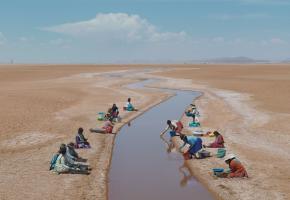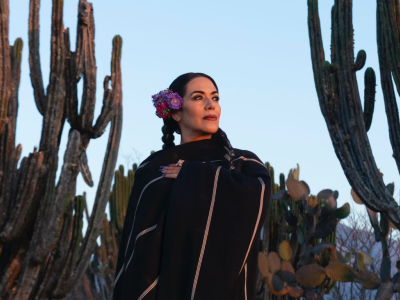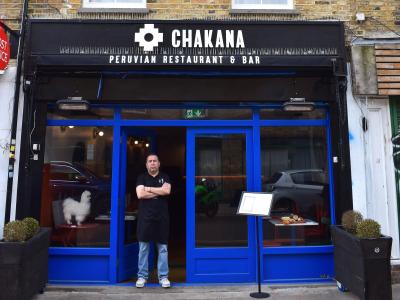Storm in the Andes relays a dialogue between Josefin Eckermann and her father – who we never hear - in an attempt to explore Josefin's past and the ‘family myths’ that she grew up with in Sweden, as daughter of exiled Peruvians. Josefin’s is no ordinary family tree and her background is one that causes serious divide, in a nation still recovering from a brutal internal conflict.
Josefin’s aunt is Augusta La Torre. She, along with her husband Abimael Guzman, founded the notorious communist group known as the Sendero Luminoso and Josefin grew up listening to stories that glorified her aunt Augusta as a heroine that campaigned for the poorer classes of Peruvian society in the late 20th century.
On seeing many of director Mikael Wiström’s films about Peru, however, Josefin decided to open up to him about her connections to the bloody conflict. The duo then travelled together and engaged with the origins of the war. There they meet Flor Gonzalez Barbaran - a villager that was just four when the initial conflict broke out – and the wheels on this magnificent production began to turn.
The journey imminently encounters plausible friction as the two women first meet. We learn that Flor initially objected to Josefin’s appearance in the documentary, as she feared it may detract from the true sufferings that so many families endured in Peru. A commission in 2003 found that around 70,000 people had died.
As spectators we steadily embark on an emotional journey with Josefin, as individuals expose the harsh truths of the barbaric cruelty of the guerrillas as well as the state, that tore through vulnerable campesino villages in Peru. Josefin reluctantly and inevitably seems to hold a weight of responsibility on her shoulders as villagers struggle to contain their anguish.
The film is remarkable in the sense that it gives a voice to villagers whose bravery to uncover the atrocities in Peru unveils the shadow that is cast over their lives. As Josefin admirably receives victim after victim of the armed conflict, the narrative focuses more on the man to whom the documentary is dedicated to.
Claudio was Flor’s brother, one of the thousands of innocent men and women who died during the power struggle. Claudio, at the time of the production of the film, was still enlisted as a fugitive under the Peruvian judicial system – despite being wrongly arrested for being part of the Sendero Luminoso. Claudio died in a prison attack by state forces in 1986.
The result of Wiström’s work is a film that grants unprecedented accessibility to two sides of devastating conflict that dominated the political landscape. Like so many Latin nations in the 20th century, land became the driving force of conflict. Flor's father, Samuel, led a peaceful revolt against landlords in 1974. The fortune was short-lived, as a military junta brought the country to its knees in 1975 and its the same time, the guerrilla's familiar narrative of agrarian reform and poverty generated a cycle of violence.
In the Q&A that followed the film screening, Wiström told the crowd that these were families that he had encountered before the uprisings began. Several photos show the close connections forged before the outbreak of violence ruptured communications. The documentary interviews close family members to discover more about Augusta and her upbringing, questioning the pivotal points of her life that caused the formation of such a devastating party. Above all, the documentary unifies the personal perspective with that of an outsider. Wistrom added that the film needed Josefina to give it the international appeal it has attracted to this day.
Josefin’s viewpoint is undoubtedly unique, yet the spectator almost stands beside her as she learns the uncomfortable truths of her family tree. A fitting quote finishing the documentary comes from Flor herself – “everybody lives their tragedy in their own way”. War has the power to divide and scar a population for decades. As both women sit on the beach in the closing shots, there is an air of reconciliation.
The documentary never shies away from the tragedies of war. Wiström’s photography becomes a marvel throughout the picture. His shots of the Andean region produce spectacular views, which are then contrasted with the desolate ruins of towns caught up in the heart-breaking conflict. Behind the grief of many lost relatives, Wiström’s production expertly captures the cruel price of war in a nation torn by ideological desires, in which families still seek solace to this day.
The festival runs from the 18th March until the 29th March across three venues. The three cinemas involved are Curzon Soho, Barbican Centre and the Ritzy Picture House. For more information visit: http://ff.hrw.org/london#film-festival
For more info on the film: http://www.stormintheandes.com/

















